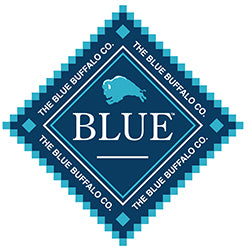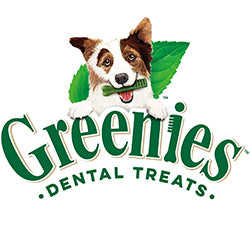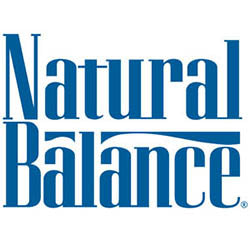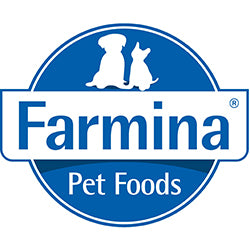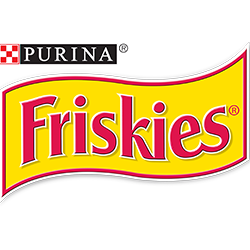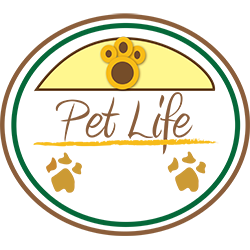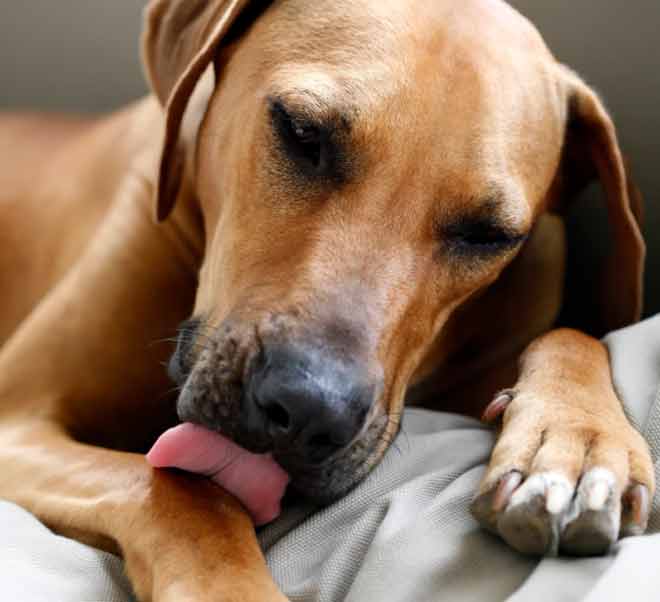
Why do Dogs lick their paws?
WHY DO DOGS LICK THEIR PAWS?
One of the most common questions dog owners ask is: “why do dogs lick their paws?” it can be unsettling to watch your faithful friend continuously lick his / her paws, especially if they lose interest in everything around them during activity. Sometimes some dogs move on to chewing on their toes, an activity that any pet parent will find disconcerting. The first step towards helping your dog stop licking is understanding the reason for such behavior. So here are the 7 top reasons dogs lick their paws:
- Pain
Paw licking is one of the many signs of pain in dogs. If your furry friend suddenly starts licking their paws, there’s a good chance that they're in pain. In such situations, pups typically lick only one paw, which can mean the dog is in pain, such an insect bite, a broken nail etc. To confirm the source of trouble, take a look at their paws and feel in between his foot pads, but if you don’t see anything and the licking continues, you should take your dog to the vet.
- Allergies
Another common cause of chronic licking in dogs are allergies. Dogs are typically allergic to a lot of different substances, but you can tell your dog is reacting to an allergy if they starts licking their paws after going for a walk or if the licking begins shortly after feedings. To establish whether your dog has an environmental allergy (caused by pesticides in the grass or the grass itself), bathe your best friend after a walk to see if the symptoms abate. But if it is a food allergy, change your pooch’s diet to foods that are beneficial to gut or stomach and skin and give it a couple days.
- Boredom
Most dogs suffer from boredom, and it can be hard for them since they were originally bred for hunting. When dogs get bored, their bodies release more cortisol, which is the stress hormone. Licking is one of the ways dogs manage stress and pass time until their owner returns home or decides to play with them. If you suspect that your pup licks their paws due to boredom, it’s a sign that you should play with them often or introduce them to more activities. When it’s time to leave the house or attend to other things at home, a dog toy can keep him occupied.
- Anxiety
Anxiety is a mental health disorder that’s commonly found in humans and also exists among dogs. There are many symptoms of anxiety in dogs, and one of them is licking. Most dogs are usually anxious because they’re afraid (which can be triggered by loud noises, new people, change in routine or separation) or it could be caused by old age, which is characterized by a decline in thinking, learning and memory. To get your dog to stop licking in this instance, observe your dog and try to establish why he or she is anxious, and then seek professional help from your vet.
- Hormonal imbalance
When some dogs lick their paws excessively, the problem may be caused by a hormonal imbalance, which could be due to low levels of thyroid hormones (hypothyroidism) or excessive production of hormones (hyperthyroidism.) This could result in symptoms like red spots, hair thinning, shedding and loss. If the behavior continues, dogs may lick themselves raw, and this results in more common lick granulates, which may become large in size and appear like open wounds.
- Dry skin (Dermatitis)
Dry skin is a condition that can be attributed to three causes: breed, weather and bathing habits. For starters, dog breeds that are hairless are more likely to suffer from dry skin than their hairy counterparts because they don’t have natural protection that hair provides. Examples are the Chinese Crested and the American Hairless Terrier. Dry skin may also be caused by excessive bathing and grooming schedules as well as extremely cold weather. While there’s nothing you can do about dry skin caused by breed, you can reduce the use of harsh soaps and bathing/grooming schedules. Consider also using only natural dog lotion or oil for your dog’s skin and coat.
- Fleas and ticks
External parasitic infections like fleas and ticks can be a source of irritation to dogs and maybe the cause of your dog’s itching. It may even get worse if your dog is allergic to fleas. Dogs with these infections lick themselves in hope to remove to parasites and soothe the area. If you think the source of your dog’s trouble is caused by these pests, consider using flea and tick repellents while also checking his coat with a flea comb.
Wrap-up
Dogs that lick their paw need some serious attention as this isn’t a common behavior. If you have done everything we shared in each of the reasons above and your dog continues to lick without any sign of quitting, you should seek veterinary advice since most cases are treatable if addressed early by a professional.
One thing is always certain, it's always important to call or visit your veterinarian to properly determine what the associated issues might be.
- Choosing a selection results in a full page refresh.

